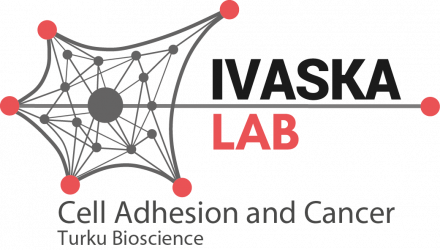MASTL promotes cell contractility and motility through kinase-independent signaling by Maria Emilia Taskinen et al.
J Cell Biol. 2020 Jun 1;219(6):e201906204. doi: 10.1083/jcb.201906204.
ABSTRACT
Microtubule-associated serine/threonine-protein kinase-like (MASTL) is a mitosis-accelerating kinase with emerging roles in cancer progression. However, possible cell cycle-independent mechanisms behind its oncogenicity remain ambiguous. Here, we identify MASTL as an activator of cell contractility and MRTF-A/SRF (myocardin-related transcription factor A/serum response factor) signaling. Depletion of MASTL increased cell spreading while reducing contractile actin stress fibers in normal and breast cancer cells and strongly impairing breast cancer cell motility and invasion. Transcriptome and proteome profiling revealed MASTL-regulated genes implicated in cell movement and actomyosin contraction, including Rho guanine nucleotide exchange factor 2 (GEF-H1, ARHGEF2) and MRTF-A target genes tropomyosin 4.2 (TPM4), vinculin (VCL), and nonmuscle myosin IIB (NM-2B, MYH10). Mechanistically, MASTL associated with MRTF-A and increased its nuclear retention and transcriptional activity. Importantly, MASTL kinase activity was not required for regulation of cell spreading or MRTF-A/SRF transcriptional activity. Taken together, we present a previously unknown kinase-independent role for MASTL as a regulator of cell adhesion, contractility, and MRTF-A/SRF activity.
PMID:32311005 | PMC:PMC7265322 | DOI:10.1083/jcb.201906204
